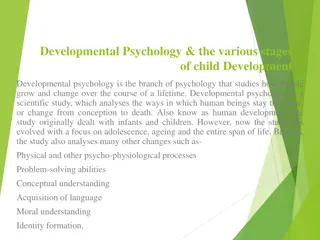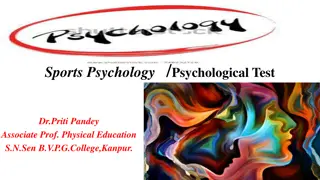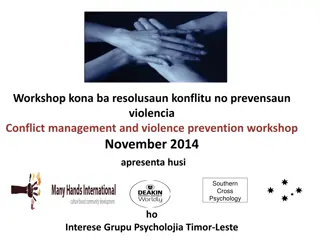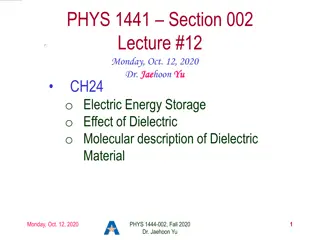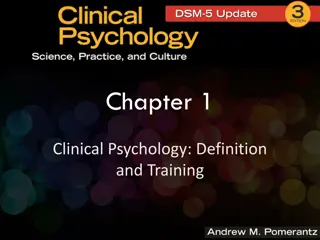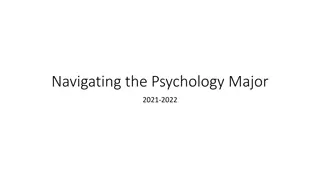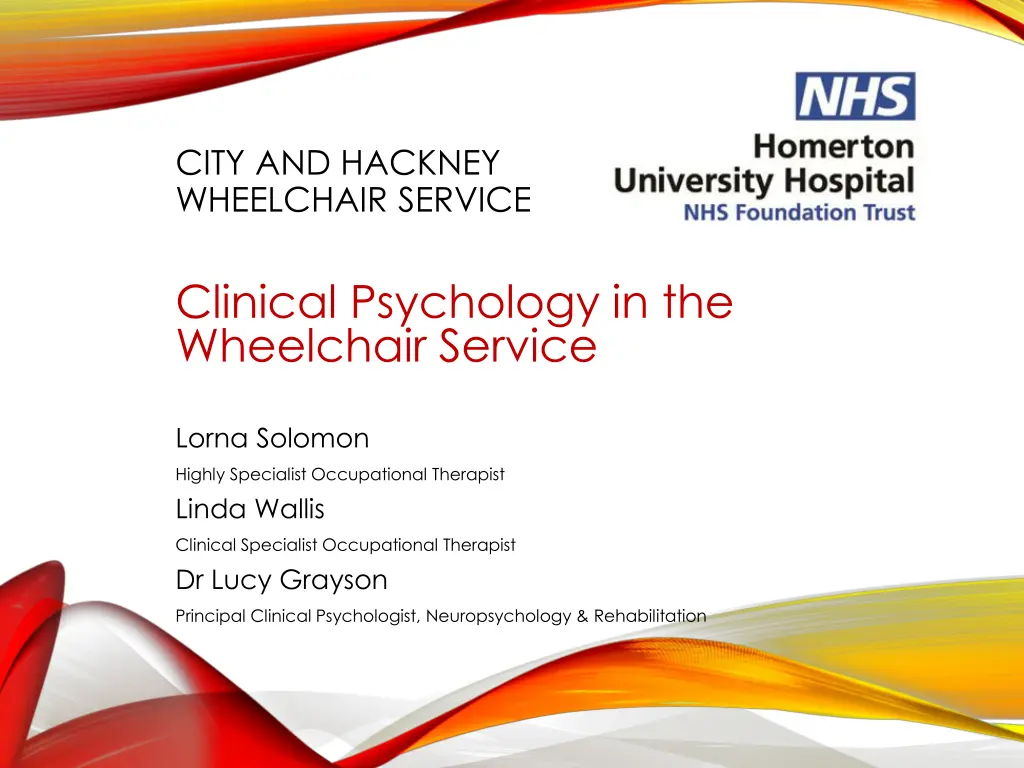
Innovative Approach to Addressing Complex Needs in Wheelchair Service
This case study highlights the implementation of a structured triage process to address clients' complex needs beyond equipment provision in a wheelchair service. By providing specialized psychological support and improving communication, the service aims to enhance outcomes and reduce re-referrals.
Uploaded on | 1 Views
Download Presentation

Please find below an Image/Link to download the presentation.
The content on the website is provided AS IS for your information and personal use only. It may not be sold, licensed, or shared on other websites without obtaining consent from the author. If you encounter any issues during the download, it is possible that the publisher has removed the file from their server.
You are allowed to download the files provided on this website for personal or commercial use, subject to the condition that they are used lawfully. All files are the property of their respective owners.
The content on the website is provided AS IS for your information and personal use only. It may not be sold, licensed, or shared on other websites without obtaining consent from the author.
E N D
Presentation Transcript
CITY AND HACKNEY WHEELCHAIR SERVICE Clinical Psychology in the Wheelchair Service Lorna Solomon Highly Specialist Occupational Therapist Linda Wallis Clinical Specialist Occupational Therapist Dr Lucy Grayson Principal Clinical Psychologist, Neuropsychology & Rehabilitation
IDENTIFYING THE NEED Implementation of structured triage processes for referrals highlighted clients whose needs were not being adequately addressed by Wheelchair Service equipment provision alone Clients with mobility difficulties associated with: o Functional Neurological Disability o Medically Unexplained Symptoms o Chronic Pain o Complex Mental Health Conditions
IDENTIFYING THE NEED The Wheelchair Service was often managing these referrals in isolation from other services which led to equipment provision seeming to be the only tangible solution Evidence that equipment provision was not addressing the underlying problem for some clients and not necessarily giving the best health outcomes in the longer term When equipment was provided there were often cycles of re-referral When equipment was not provided, onward signposting was happening without support which again resulted in cycles of re-referral
THE CHALLENGES Triaging referrals for this client group was increasingly taking more time Referrers often reported not knowing what else to offer clients & felt pressure to offer tangible solutions to complex problems Clients and their carers were often expressing high levels of anxiety & distress Clinicians were struggling to frame difficult conversations with clients who often saw equipment provision as the only solution to their problems
WHAT WE DID Request for provision of dedicated specialist Neuropsychology support for Wheelchair Service Team Agreement for 6-month trial of Band 8a Specialist Clinical Psychologist support of 3 hours per week: o Education & support for clinical staff o Supporting triage decision making process o Support with framing client conversations o Joint visits with Wheelchair Service Therapist o Support with liaising with other services and onward referrals
WHAT WE CHANGED ESTABLISHING LINKS WITH OTHER LOCAL SERVICES Investigating relevant local services available and referral pathways: o Adult Community Rehabilitation Team with embedded Specialist Clinical Psychology support o Pain Management Programme using multi-disciplinary psychosocial approach o Primary Care Psychotherapy Consultation Service o Chronic Fatigue Service
NEW TRIAGE PROCESS Referral documentation & previous Wheelchair Service notes Review of other previous interventions including Pain Management Team & Community Rehabilitation Teams Hospital reports & GP notes Discussion with other health teams REVIEW OF NOTES & RECORDS Gather the client s perspective Further information about ongoing or potential investigations Explore client s understanding of condition and their view of rehabilitation & treatment options both past and future TRIAGE CALL TO CLIENT LIAISE WITH CLINICAL PSYCHOLOGIST Liaise with mental health services Review medical notes Discussion with GP if required Supporting clinical reasoning to identify appropriate pathway Advice on framing conversations
POSSIBLE TRIAGE OUTCOMES Wheelchair Service Assessment and Equipment Provision is Appropriate Client Assessment is completed by telephone assessment or face-to- face appointment as appropriate Client may be offered a face-to-face joint appointment with Wheelchair Service Therapist and Clinical Psychologist if appropriate Benefits Improving clients understanding of their condition and what might help/hinder We know that we have given the client all the opportunities for other treatments We may make further referrals in conjunction with, or instead of equipment provision We give clear guidelines and reasoning for use of equipment to limit potential for exacerbation of difficulties
POSSIBLE TRIAGE OUTCOMES Assessment & Provision of Equipment is not Indicated Reasoning may include: Client is open to rehabilitation services or willing to be referred Client is receiving or awaiting intervention by another specialist service Client is willing to be referred onward to an appropriate service Advice from other health professionals is that provision of a wheelchair is contra-indicated Client does not meet the Wheelchair Service criteria for some other reason (e.g. does not meet Powered Pathway Criteria)
CLIENT ONE OUTCOME Client re-engaged with ACRT with support from ACRT psychology & made good progress towards outdoor mobility goals Manual wheelchair was prescribed with a clear recommendation for use (long distances outdoors only) so that client could begin attending church again Client engaged well with PCPCS (longer term psychotherapy service for complex patients with medically unexplained symptoms) Further review by Pain Team WHAT WE DID SUMMARY Liaised with GP, pain services and mental health teams to build formulation of client and their difficulties and to try to ensure consistency of message across teams Referred by GP for powered wheelchair Osteoarthritis, carpel tunnel, depression & chronic pain On screening, the client did not meet the criteria for powered wheelchair assessment as she was walking indoors with an aid Joint assessment WCS and psychology - helped client understand their condition, the rationale for limited wheelchair use, and the importance of other treatment options (including understanding the role of anxiety in reluctance to mobilise outdoors) Previously known to Pain Team Currently known to multiple mental health teams, has attended A&E due to suicidal ideation Pain team had recommended referral to Adult Community Rehabilitation Team (ACRT) Sent a therapeutic discharge letter to the client summarising the joint understanding developed with them in the assessment session Client had been unable to engage with ACRT due to mental health difficulties (and beliefs about condition/pain) Client requested manual wheelchair
CLIENT TWO SUMMARY OUTCOME WHAT WE DID Referred by GP Equipment not issued client agreed to pursue further treatment Liaised with ACRT physiotherapist At this stage we felt that wheelchair provision for outdoor use was most likely outcome Home visit Assessment by Wheelchair Service therapist and clinical psychologist Helped client build on her understanding of the diagnosis of PPPD as a functional neurological disorder. Fibromyalgia, Lupus, Ischaemic Heart Disease, Dizziness Episodes Although she had a number of other conditions, she felt that the PPPD was the most debilitating at that time. No previous physiotherapy intervention, dizziness was Persistent Postural-Perceptual Dizziness (PPPD) Client demonstrated some understanding of FND but had not had specialist treatment for this condition. Referred to Adult Community Rehab Team (ACRT) ACRT intervention did not respond to physiotherapy. Referred back to ACRT for treatment of PPPD. Re-referred to Wheelchair Service for wheelchair for outdoor use. Client also referred to the Pain Team and joint decision to prioritise pain management strategies with the idea of re-referral to ACRT. Home visit Wheelchair Service Therapist and Clinical Psychologist.
OUTCOMES No reduction in time taken to triage and assess these clients Better outcomes for clients in that they now have more treatment options rather than one possible solution Reduced cycles of re-referrals Improved understanding by clinical staff of the complex presentation of clients conditions and improved confidence in clinical reasoning Better links with other services and improved understanding of the benefits of working together Doesn t work for every client, sometimes there isn t a solution Wheelchair Service clinical staff feel more supported
WHAT NEXT? Secured permanent funding for psychology support of 0.13 WTE Development of a shared pathway for children Neighbourhood MDM & Anticipatory Care Pathways Powered mobility & Specialist Neuropsychology Assessment



